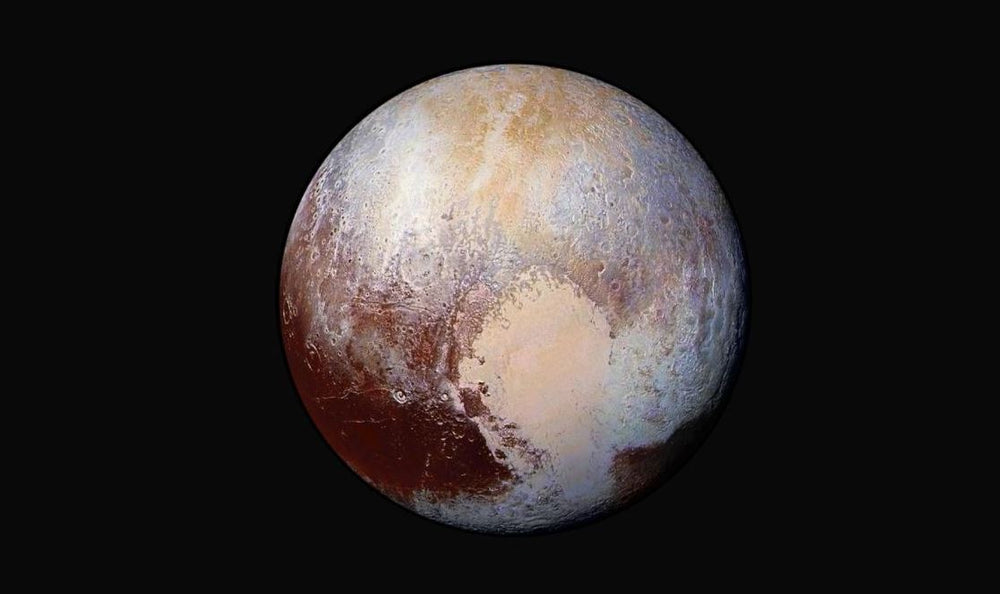When was Pluto Discovered
Pluto, once considered the ninth planet in our solar system, has a fascinating discovery story that is closely intertwined with the history of astronomy. In this blog post, we will explore the timeline of the discovery of Pluto, the astronomers involved in its discovery, and the impact of the discovery on our understanding of the solar system.
When was Dwarf Planet Pluto Discovered by Humans: Who, What Year, How
Pluto was discovered in the 20th century, and its discovery is credited to American astronomer Clyde Tombaugh.
1. Who: Clyde Tombaugh
2. When: Pluto was discovered on February 18, 1930.
3. How: Tombaugh systematically searched for a ninth planet beyond Neptune as part of a project at Lowell Observatory in Flagstaff, Arizona. He used a technique called "blink comparison," where photographic plates taken at different times were rapidly alternated. This method allowed him to identify any object that moved against the background of fixed stars. In comparing these plates, Tombaugh noticed a faint object that shifted its position over time, indicating its motion through space. This discovery marked the identification of Pluto as the ninth planet in our solar system.
Pluto was considered the ninth planet until 2006 when the International Astronomical Union (IAU) reclassified it as a "dwarf planet" due to changes in the definition of what constitutes a planet
Timeline of the Discovery of Pluto
The discovery of Pluto is a complex story that involves a number of astronomers working independently of one another. In 1906, American astronomer Percival Lowell began a search for the "ninth planet" in our solar system. Lowell was motivated by irregularities in the orbit of Uranus, which had led to the discovery of Neptune in the 19th century.
Lowell continued his search until his death in 1916, but he was not successful in finding the ninth planet. However, his work did inspire a number of other astronomers to search for the planet.
In 1930, American astronomer Clyde Tombaugh discovered Pluto while working at the Lowell Observatory in Arizona. Tombaugh's discovery was the result of a systematic search for the ninth planet, which involved photographing sections of the sky over a period of several years and then comparing the images to look for any changes.

Astronomers Involved in the Discovery of Pluto
Percival Lowell was an American astronomer who began the search for the ninth planet in our solar system in 1906. Lowell was a wealthy businessman and philanthropist who founded the Lowell Observatory in Flagstaff, Arizona. Although Lowell did not live to see the discovery of Pluto, his work was instrumental in inspiring other astronomers to search for the ninth planet.
Clyde Tombaugh was an American astronomer who discovered Pluto in 1930 while working at the Lowell Observatory. Tombaugh's discovery was the result of a systematic search for the ninth planet, which involved photographing sections of the sky over a period of several years and then comparing the images to look for any changes.
Impact of the Discovery of Pluto
The discovery of Pluto was a significant event in the history of astronomy, as it was the first planet to be discovered in the 20th century. Its discovery expanded our understanding of the solar system and sparked new interest in the search for other planets.
However, Pluto's status as a planet has been the subject of debate in recent years. In 2006, the International Astronomical Union (IAU) reclassified Pluto as a "dwarf planet," citing its small size and irregular orbit. This decision was controversial and has been the subject of ongoing debate among astronomers and the general public.
Additional Information about the Discovery of Pluto
The discovery of Pluto was not without controversy. There was some dispute over who should be credited with the discovery, with some arguing that the discovery was the result of a team effort rather than the work of a single individual. Tombaugh, for his part, always acknowledged the contributions of his colleagues and collaborators in the discovery of Pluto.
The discovery of Pluto also had important implications for the study of astronomy beyond our solar system. The discovery of Pluto demonstrated the power of systematic observation and comparison, and it inspired new generations of astronomers and scientists to explore the mysteries of the cosmos.
Furthermore, the reclassification of Pluto as a "dwarf planet" in 2006 sparked new debates about the nature of our solar system and the criteria for classifying objects within it. The reclassification also raised questions about the history of astronomy and the ways in which our understanding of the universe is shaped by changing scientific and cultural contexts.
Conclusion
In conclusion, the discovery of Pluto was a significant event in the history of astronomy. Its discovery was the result of the work of a number of astronomers, including Percival Lowell and Clyde Tombaugh. The discovery of Pluto expanded our understanding of the solar system and sparked new interest in the search for other planets.
Today, we continue to learn new things about Pluto and the other objects in our solar system, and the discovery of Pluto remains an important milestone in the history of astronomy. While its status as a planet may be in question, the significance of its discovery cannot be denied.
Read more about Pluto:
- Facts about Pluto
- How did Pluto get its name
- Pluto distance from the Sun
- How long does it take Pluto to orbit the sun
- Does Pluto have Clouds?
- How many moons does Pluto have?
- What is Pluto made of
- Mass of Pluto
Read more about Planet Discovery:
- When was Mercury discovered?
- When was Uranus discovered?
- When was Neptune discovered?
- When was Jupiter discovered?
- When was Mars Discovered?
- When was Venus Discovered?
- When was Saturn discovered?

